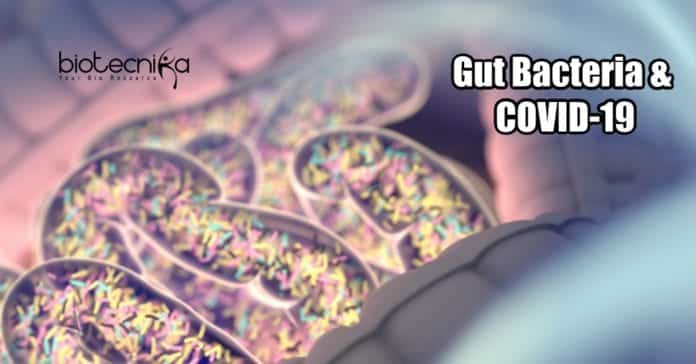Relationship between Gut bacteria and COVID-19
Researchers have implicated that gut bacteria in a number of diseases. There are many studies focused on the relationships between a large range of disease conditions and the organisms that live in our gastrointestinal tract including type 2 diabetes and depression.
The recent paper lays out a prior study that shows links between lung health in general and bacteria present in the gut.
Apparently, a relationship between COVID-19 and the gut bacteria may appear not likely. But, there are a number of factors to presume such a link.
For example, a common feature of COVID-19 is gastrointestinal symptoms. In one research study, over half of those with the disease reported gastrointestinal symptoms, consisting of vomiting as well as diarrhea.
Additionally, ACE-2 receptors are involved in the relationship between COVID-19 and gut bacteria. SARS-CoV-2 uses these receptors as entrance factors into cells; they are revealed in a few anatomical sites, consisting of the lungs as well as the intestinal tract.
The scientists have also detected SARS-CoV-2 in the feces of individuals with COVID-19 infection.
The authors describe exactly how our microbiome may influence either our risk of developing COVID-19 or the extent of the illness
in a research paper published in the journal Virus Research. Even though there is no direct proof, the researchers look at different lines of converging proofs.Gut-lung axis
It is unforeseen – A relationship between the gut and the lungs. But, this is not a new theory as the authors discuss in their research. The gut-lung axis defines the cross-talk that happens between the lungs and gut microbiota.
Metabolites and endotoxins produced by bacteria in the gut, can reach the lungs via blood and affect the lungs. Similarly, bacteria residing in the gut can be affected by the inflammation in the lungs.
The authors describe, “This increases the interesting possibility that SARS-CoV-2 might also have an effect on the gut bacteria”. “As a matter of fact, numerous researches have actually demonstrated that a change in the composition of the digestive tract bacteria is associated with respiratory infections”.
The researches also noted that some researches have demonstrated links between acute respiratory system distress syndrome, which occurs in severe cases of COVID-19, and digestive tract bacteria. Additionally, they discuss that in mice, “removal of specific digestive tract bacteria by antibiotics brings about enhanced vulnerability to influenza virus infection in lungs”.
Immune system and Gut bacteria
With years of studies, it has actually become progressively clear that the microbiome plays a role in the body’s immune system.
“The tuning of immune cells for pro- and anti-inflammatory responses is aided by gut bacteria, thus affecting their susceptibility to numerous diseases,” said the authors of the paper.
“The composition of balanced digestive tract microbiota is known to have a significant impact on the performance of lung immunity. Damaged pathogen clearance capacity in the lung is shown in the germ-free mice – lacking their intestinal microbiota” they added.
According to other researchers, the repeated use of antibiotics is connected with a higher threat of lung and other cancers – once again shining a light on a potential link between the lungs and gut.
Even though scientists have not shown a direct relationship between gut bacteria and COVID-19, the authors think that the circumstantial evidence is enough to call for additional examination.
Role of nutrition
Diet and nutrition play a considerable function in shaping the composition of gut bacterial populations. As an example, one research demonstrated that people who follow a meat-based Western diet have very different populaces of gut microorganisms compared with people who consume a plant-based Mediterranean food.
Likewise the authors of the paper state a study that took a look at lungs’ gut bacteria, allergic reactions, as well as dietary fiber. The researchers found that levels of short-chain fatty acids in the blood increases when microorganisms metabolize dietary fiber, which has a protective impact on the lungs’ allergic inflammation.
The authors concluded by saying, “Our results show that dietary fermentable fiber and short-chain fatty acids can shape the immunological environment in the lung as well as affect the allergic inflammation’s intensity”.
The authors of the paper write:
To contribute to the conversation, in a study from last month, scientists assessed feces samples of 15 COVID-19 patients. They collected samples 2-3 times a week throughout the individuals’ hospital stay.
The researchers compared this information with feces samples from 15 healthy individuals and 6 individuals with pneumonia but without COVID-19 infection. They discovered that across all time points, “Compared to controls COVID-19 patients had substantial changes in fecal microbiome.”
However, until now no researches have resolved the question of cause and effect. A lot more research study is required to know whether having COVID-19 alters gut bacteria or whether gut bacteria influence COVID-19 risk. Despite everything, the authors wrap up that “strategies to alter the intestinal tract microbiota might minimize disease intensity”.
The take-home message
As of now, there is no strong proof to suggest that SARS-CoV-2 interacts with intestine microorganisms in a purposeful method, or that the microbiome affects the severity of COVID-19 infection. But, it certainly appears to be a reliable concept when all the information in the new paper is taken.
We can just conclude that gut bacteria could play a part in the severity of their symptoms or susceptibility to COVID-19 at this phase.
Author: Sruthi S






























